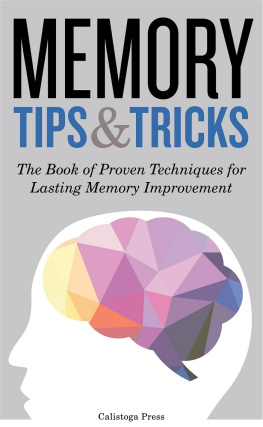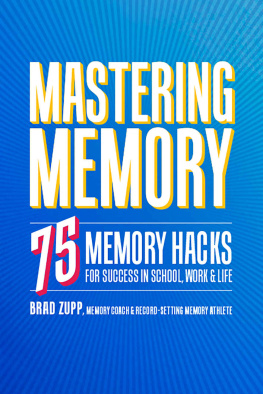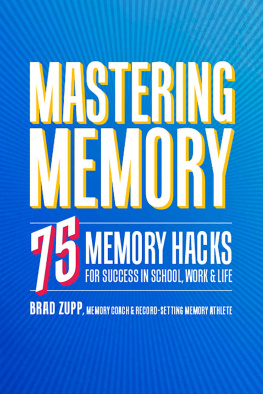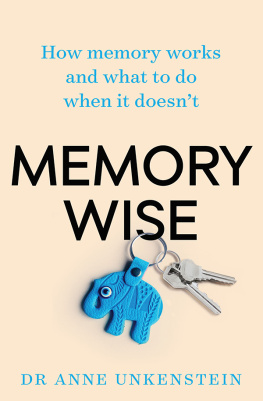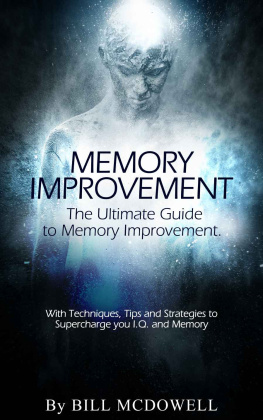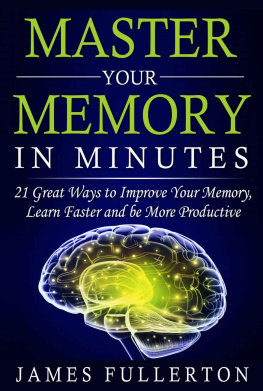
This is one of those rare books that can help all of us with something that is both troublesome and worrisome our memory. It does this with ease, not by attempting to teach some exhausting rote-memory techniques, but in 12 easy and effortlessly smooth steps.
Shakuntala Devis down-to-earth writing and encouraging step-by-step approach puts super memory in reach of everyone. As she says, Take my word. You can start applying my memory-enhancing techniques immediately, right now. Before you will realize, applying my methods and strategies will become your second nature.
Shakuntala Devi has been honing and teaching her memory improvement techniques for more than 40 years. Super Memory is the result of her life's work, specially tailored to our needs as we age, and encompassing all of the many ways we can use a better memory every day.
The Author
Born to an orthodox Brahmin family in Bangalore, Shakuntala Devi manifested an extraordinary love for numbers at a very early age. By the time she was five years old she had become an expert in complex mental arithmetic. The rest, as they say, is now history. Problems that took learned men hours to solve, she could solve in seconds; she could out-speed and out-calculate the fastest of computers. Put to test in the UK, her admirers and critics alike were left in daze by her mental abilities. BBC called it a mind-collapsing proof of her mental abilities, and hailed her as an authentic heroine of the twentieth century.
An ardent proponent of the infinite capabilities of the human mind, she regularly conducts seminars and workshops on mind dynamics in which she demonstrates and teaches techniques for developing the latent potential of human mind, including a range of memory honing techniques. The feed-back from these workshops has been enormous, and this book, Super Memory, is born out of her intense desire to help each of us to benefit from the brain-power we possess.
She has authored several international bestsellers which have sold millions of copies worldwide and have been translated into many languages. She is also the recipient of Ramanujan Mathematical Genius Award, which was bestowed on her in Washington, USA, in 1988.

www.orientpublishing.com
eISBN: 978-81-222-0507-7
Super Memory: It Can be Yours
Shakuntala Devi
Cover Design by Vision Studio
Published by
Orient Publishing
(A division of Vision Books Pvt. Ltd.)
5A/8 Ansari Road, New Delhi-110 002
Electronic edition produced by
Antrik ExPress
Contents


F or months I had been mentally lobbing around the idea of a memory-improvement book that could be pursued in the privacy of a students home, at a time best suited to him or her. The germ of the idea had been implanted in my mind by several students who had attended my memory-development workshops. They wanted me to write a book that they could keep as a permanent reference and refresher. It set those mental wheels churning. Sounded like a good idea, I thought.
The idea was cemented by another student. She hugged me spontaneously after a session. Youve changed the way I look at myself! she exclaimed. I feel Im brimming over with confidence ... as if Ive added on more grey cells in my brain! I feel now as if ... I could ... take on the world!
Click! The writer in me responded wholly. I would write this book!
But ... easier said than done! There I was, pen clutched in anticipation in my hand, my eyes staring at a piece of blank paper for an hour. But there were more questions than answers jostling for attention in my mind. To whom should I address this book? Should I limit its scope to a refresher series for those who had attended my memory-improvement workshops? Or should I reach out to anyone who wanted to optimise his powers of memorisation and concentration? And if so, what should my approach be? What exactly did I wish to communicate?
The mail delivered the answer! Shalan, a close friend and an author and journalist herself, had sent me a short story shed written in the sci-fi genre. She thought (she wrote), it would interest me because it had to do with ... I wont explain it. Instead, Ill be a little unconventional and, with her permission, reproduce the story for you. I think youll enjoy the fine ironies it spells out ...

2044 by Shalan Savur
Some things dont change. Youd think that in the year 2004 things would be different from 1944 or 1844 or 1744 or even as far back as 44 or 4. To think that once man crawled on all fours. But that was in the days when The Great Artist Himself was still in the planning stages, or so Darwin would lead us to believe.
But then, Man surprised the Great Artist when he suddenly stood on two feet and found he still had two more (later called hands) to eat with, throw with, fight with. It produced the strangest results as you can see.
As Mans head rose higher, so did his ideas. From the humble bullock-cart, he graduated to the automobile and then to the aeroplane until, finally, he designed the rocket. By then, his head was well into the clouds and its no wonder that he desired to reach the moon.
The Great Artist was ecstatic. Ah, the marvel he had produced had no limit. He called that extra special thingummy inside Mans brain: Intelligence. But all this was, as you know, in the years 4 and 44 and perhaps even up to 1944.
But, remember; we are in the year 2044. Until then the Great Artist was pleased, for Man offered Him his prayers in the simplest, if not the quaintest, of ways. He knelt, he bowed, he folded his hands, he lit candles, diyas, agarbattis. But things took a different turn.
Man devised the computer. It began by doing simple little calculations. It added, subtracted, multiplied, divided. But as the years passed by, Man added on more and more ideas to make the computers simple little insides into a complex labyrinth-like network.
So it came to pass that, by the year 2044, the computer had taken over completely. It had (and you must believe this when I say it) Intelligence. Of course, Man patted himself for his progress. Now, he had a machine that ate, drank, played sport, waged wars, and even thought for him.
Indeed, the Great Artist felt a little uncomfortable to have the prayers faxed to Him. It was strange to see Man reclining on his easy-do-all chair and languidly blow on a button to send up those precious prayers. It was even more strange to see electronic agarbattis come on like psychedelic lights.
Ive said earlier, things hadnt changed in 2044. It is just that the methods had become easier. But the Great Artists great mind was in great turmoil. And well it would be. What had happened to that marvel called Man that He had created?
His muscles were shrinking due to lack of use. Ditto his brain power for ditto reasons. The whole world was being run from a keyboard by robots. The Great Artist could see the great world that he had designed from a big bang of inspiration shrink and shrivel in front of His great eyes. Would it disappear with a whimper?



